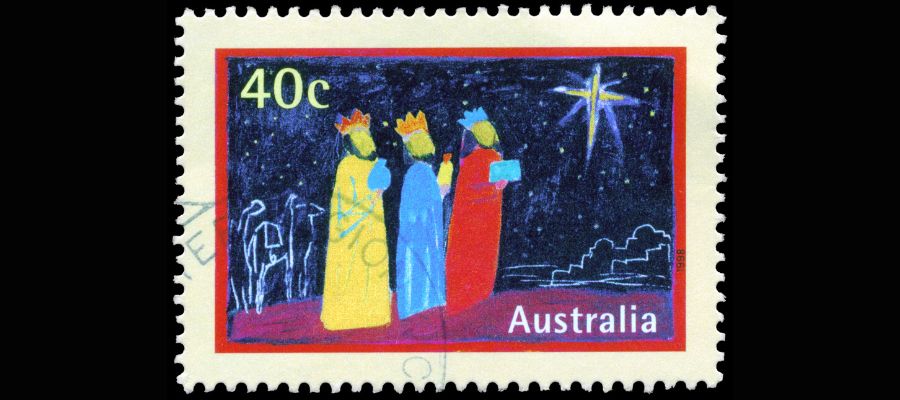
Readings: Matthew 2: 1-12, Proverbs 8: 1-10
The new year is a great time to relax. In between the relaxing, when the brain cells start to stir a little after recovering from the onslaught of calories from Christmas … this is a great time to start to reflect on where you are at and where you are heading. What matters to you? Are there goals you would like to achieve this year? Who am I at this time in my life?
We each face different situations and unique challenges as we look ahead. But for all those of us who seek to follow Jesus Christ, we share a heart to include God in the mix. More than that, to allow God to profoundly shape how our lives are turning out.
There is a word for this in our Christian vocabulary and that word is ‘discipleship’
What does it mean to be a disciple of Christ?
Through January we highlight aspects of discipleship, and we will read stories of the first disciples of Jesus and how they started to figure out what that meant for their lives.
But first, the wise men. Perhaps you could say that they were the first followers of Christ – or of his star at least. For them the following was a profound commitment of heart and mind, even going to the rediculous expense and outrageous risk of setting out on an unknown road to see Christ for themselves.
So who were these Magi, these wise men in this most curious and puzzling of Bible stories? Not kings, surely – that was a mis translation early on in English bible translation.
But scholars, historians, astronomers, researchers, readers of the signs of the times. I guess we would today say ‘scientists’. Though their science was perhaps more broad than the highly specialised categories of science we have today.
Over the past year and a half I worked as administrator for NZ Christians in Science. This really stretched my brain, and grew my faith. I was honoured to meet and work with some of NZ’s top theologians and scientists, people exploring the dynamic conversation between faith and science. People like the Christians in Science director, Nicola Hoggard Creegan.
She was interviewed recently about evolution. The interviewer asked:
“Why do you think that an evolutionary view of life does not hinder our conviction that
the world is God-made, good, and destined to a glorious future to come?
Nicola’s response was:
“Science can act to flatten everything, as it did in the 20th century when evolution
was seen as a mechanistic process which did not involve any personality or telos at all.
That certainly does not help with the Christian story. But evolutionary theory has another side. The deeper you go into science, especially recent understandings, the more you see how the whole of nature reveals God. It helps our understanding that there is purpose and destiny to everything.
Science can be an extraordinary aid to our understanding of the glory of God.”
My new home is on grounds of an old Veterinary hospital and a research institute. The questions and processes of science have literally come more close to home to me.
What you are learning at this point in your life?
All learning is a form of science, a form of growing into greater understanding, towards more truth. Have you studied science and used it in your work? Or are you familiar with other forms of knowing, the patterns of tides, or the growing of roses? The right amount of baking powder to make a cake? Or perhaps you have dedicated yourself to the human sciences and you understand how to listen.
One thing that fascinates me about the Magi in Matthew’s gospel is how many sources of information they use. Theirs was a very broad and diverse approach to science and truth.
First, they studied texts. Matthew says that they came from the East, from far away. This probably places them in Persia, modern Iran – where there were fabulous libraries, collected by the Babylonians from their conquests. The Magi would have studied language and culture and read religious texts and prophecies from many nations. From these they identified the prophecy of a new king and messiah.
Second, they studied stars. To identify a comet requires a prodigious knowledge of the galaxies. Many ancient cultures knew the stars intimately, including those in the Pacific. The Magi had spent many many nights awake and watching the night sky. They knew it like the back of your hand.
And so, based on their research of text and stars they came to a momentus decision: to travel to find the new king and messiah and honour his birth.
This is the need for a very different source of truth – direct personal experience. They were not content to send gifts in the post, or servants to represent them. They chose to go in person. They were experiential learners. Go and do, not just sit and think.
But they did not yet have enough information. So they did what men notoriously hate to do – they stopped to ask directions! They were on an globally critical mission, so they went to the top – the local governor. And King Herod was in fact able to draw on the intellectual resources of his top men, and give them specific directions – Bethlehem.
Unfortunately for them, King Herod was also mad with power and highly dangerous. But how did the Magi learn this? Perhaps their relational instincts may have warned them that King Herod was lying. But they also listened to a very different source of information – an angel in a dream. Isn’t that fascinating … because many people who call themselves scientists in our world today would not consider a hunch or voice in a dream to be reliable information. But for the Magi this was as much a source of truth as anything else.
So: 1) text, scholarship, academia; 2) stars, astronomy observing the natural world; 3) travel, direct engagement; 4) asking for directions, consulting local experts, and 5) trusting the numinous, the spiritual.
And yet these five different sources of reliable information were still not enough to find the Christ – because Matthew’s line about the star stopping over the house is just pure nonsense! Surely that is one of the least logical lines in the Bible. A star cannot reveal a house. These two are on different planes of reality. Christmas cards try to resolve this gap with a pretty beam of starlight shining on the stable roof. And these days of course they would just use a GPS or google – but even that would require significantly more detailed information than they had acquired. How did the Magi find Mary and Jesus? The Bible simply does not say. There is a leap of faith involved. A gap in logic. A point at which all our human sources of truth stand back and wait.
So in the end it is obvious: God led them. How? Maybe some more tour guides were involved, or maybe their camels knew and just took them there – you can imagine it however rings true for you.
The point is, anything of great importance requires truth from a wide range of sources. Some sources of truth are more valued in our society than others. In the church we choose to value ways of knowing that are hard to pin down, and difficult to articulate. As a minister of the gospel that’s my job, to name the things that slip from our grasp or that rumble in our gut. I am here to invite you to trust the ways in which God is speaking to you. And to challenge you to act on that knowing.
My point about discipleship is – like the Magi, keep on learning. Seek out more truth, from more sources. Read, listen, experience, watch, have great conversations, and trust what you know in your heart. And Jesus will be present, and you will bring him honour, just as the Magi did.
You might like to listen to the song ‘Mary Did You Know’ (Pentatonix recording). Partly because it is rather beautiful and you can have time to sit and rest in God’s presence. And partly because the question it asks over and over is – can we know things beyond the obvious? Did Mary know who her son would become? – of course not, and yet, absolutely. It’s all about layers of truth, diverse sources of truth, and finding God in seeking what is true.



